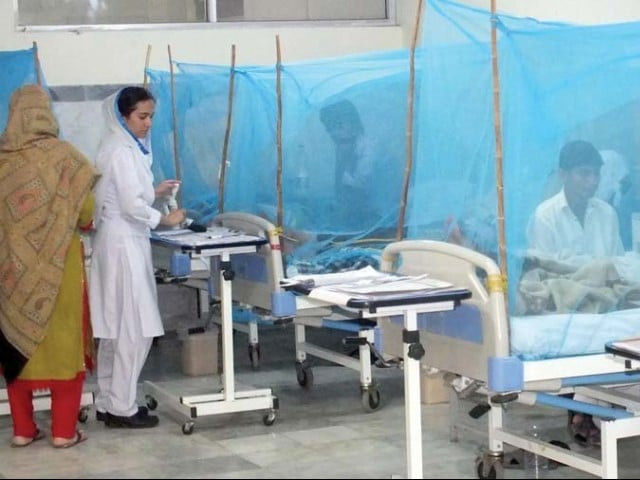Water-borne diseases: Health, district officials told to take pre-emptive steps
NIH says congested localities at greater risk of outbreak of gastro, dengue, malaria

A total of 40 fatal Naegleria cases were reported from different tertiary care hospitals of Karachi since 2012. PHOTO: AGHA MEHROZ/EXPRESS
In the wake of the Met Office’s forecast and keeping in view the previous disease trends during monsoon, the NIH has issued an advisory for preparedness and taking timely pre-emptive steps to minimise outbreaks of water-borne diseases.
The NIH has warned against gastroenteritis, enteric fever, hepatitis, Crimean haemorrhagic and typhoid fever, dengue, malaria, measles and poliomyelitis that may breakout if timely measures were not put in place.
From 2011 to 2014, more than 48,000 dengue cases and 280 cases of Congo fever were reported in Pakistan with a surge in the number of cases of gastro and hepatitis in rainy season.
“Hot, humid weather and rain spells make conditions favourable for multiplication and transmission of micro-organisms responsible for water and food-borne diseases’ outbreaks,” said the advisory.
It said that natural water reservoirs get contaminated due to mixing of rain water and sewage.
The climatic conditions also become extremely conducive for growth and transmission of microorganisms during summer and monsoon seasons.
“Lack of awareness about good sanitary and hygienic practices further complicate the conditions, which can lead to acute watery diarrhea, cholera, gastroenteritis, enteric fever, acute viral hepatitis and other outbreaks, which not only leads to an increased level of morbidity and mortality but also become a burden on the available resources,” the advisory said.
The advisory has warned that rainy areas, poor and congested localities were at greater risk of epidemics of water and food-borne infectious diseases.
“The water-borne diseases attributed to consumption of unsafe water and non-observance of proper sanitation and poor preventive measures may pose a serious challenge to health and water and sanitation authorities,” it said.
The advisory has suggested monitoring water supply systems, repairing damaged water pipes, sewerage lines besides monitoring hotels, restaurants, food points, ice factories, street vendors and water reservoirs.
It has also suggested enhancing hospitals and health care institutes’ capacity to cope with possible high number of patients besides putting in place rapid response arrangements in liaison with district, provincial and federal governments’ health and sanitation departments.
Separately, the health institute has also advised the health, water and sanitation authorities to take measures to prevent the outbreak of Naegleria — an amoeba which was found in water in some areas of Karachi that can cause a severe infection of the brain.
A total of 40 fatal Naegleria cases were reported from different tertiary care hospitals of Karachi since 2012.
One fatal case from Karachi was reported on June 30 this year.
Published in The Express Tribune, July 19th, 2016.



















COMMENTS
Comments are moderated and generally will be posted if they are on-topic and not abusive.
For more information, please see our Comments FAQ